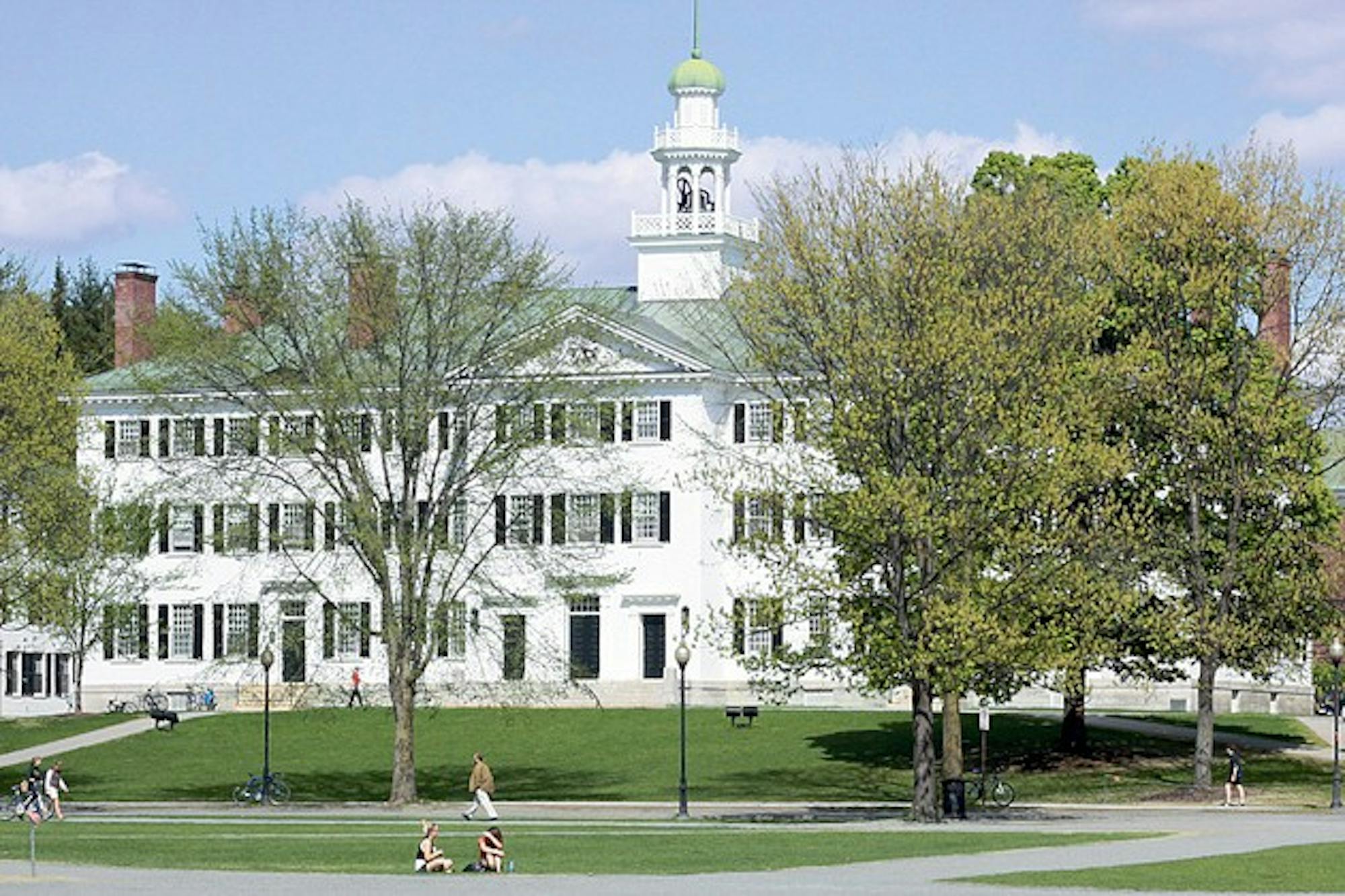Given the College's current undertaking to eliminate up to $100 million from the budget, news of the campaign's completion was "very reassuring," College President Jim Yong Kim said in an interview with The Dartmouth on Thursday.
"My first reaction was that this was a tremendous relief," Kim said. "We'd always been planning that we'd reach the $1.3 billion. Having reached it assures me that our deficit isn't going to be bigger than we planned."
The campaign which former College President James Wright initiated in July 2002 and launched publicly in November 2004 was completed as planned on Dec. 31, according to the press release.
A total of 65,174 donors contributed $1.308 billion to the campaign with $177 million raised for Dartmouth Medical School, $125 million for the Tuck School of Business and $61 million for the Thayer School of Engineering according to the press release.
Board of Trustees Chairman Ed Haldeman '70 said in an interview with The Dartmouth that he feels the Dartmouth community is "entitled to celebrate fully" the campaign's "amazing" success, but cautioned that the College must tackle the remaining financial challenges with full force.
Haldeman said he was surprised the campaign's goal was achieved on deadline given the current economic climate.
"I didn't think it was possible, to be candid, because the financial crisis that has affected the country has really slowed down the rate of philanthropic giving," Haldeman said. "It's an amazing job by our development team, an amazing testament to the loyalty of the Dartmouth community."
Kim emphasized that while the campaign was very successful, its proceeds will not contribute to and therefore must not distract from the goal of reducing the College's spending by as much as $100 million over two years.
"The notion that we'd be at $1.3 billion was already calculated into our financial projections," Kim said. "We had over $1.2 billion when I took over in July. This is not new money that came in to fix the deficit."
The Dartmouth College Fund, the College's fund for unrestricted annual gifts, received a total of $270.7 million throughout the campaign, according to the press release. The money donated to the Dartmouth College Fund is used to offset the costs of running the College and "isn't committed to any project," Haldeman said.
In the last few years of the campaign, the Dartmouth College Fund received $40 million annually on average from the campaign, according to Kim.
"Each year we count on that to contribute to our budget," Kim said. "One of the reasons we have the $100 million deficit is that [the Dartmouth College Fund] raised less than $40 million last year."
Kim and Vice President for Development Carrie Pelzel '54 stressed that generating new donations to the Dartmouth College Fund will become an even greater financial priority now that the campaign has been completed.
The growth rate of the fund needs to increase because "unrestricted current-use charitable gifts are vitally important" to reducing the deficit, Pelzel said in an interview with The Dartmouth.
"When we get additional funding for new projects, even though we're very grateful, it doesn't help us to solve the deficit that already exists," Kim said.
Kim said the success of the Campaign for the Dartmouth Experience should act as motivation to remedy the budget deficit.
"Seeing what we've done in the last few months to actually finish the campaign, my sense is that if we are serious and we take seriously the budget-reduction process that we're going through, we can recover and get back on the path to growth quickly," Kim said.
Most of the donations to the campaign were spent as they were received, Pelzel said, which was the original intention of the campaign.
A total of $530.8 million was donated as current-use gifts earmarked for specific programs or purposes, with contributions toward construction and renovations amounting to $344.7 million, the press release stated.
Donations to specific, long-term endowments totaled $407.3 million, according to the press release. Campaign funds produced four distinguished endowed chairs in the College, 17 endowed professorships in the College and 14 endowed professorships among the three professional schools.
The campaign raised $122 million to "offset the more than 20-percent increase in students seeking financial aid" through undergraduate scholarship endowments, the press release said.
The campaign's success is already evident at the College, Haldeman said.
"There are a lot of new dorms, the campus is beautiful, we've expanded our financial aid program," Haldeman said.
Kim said he believes the campaign's success reflects the respect people have for the College, and especially for Wright.
"Even in very difficult economic times, people still stepped up to contribute to the Dartmouth experience, which in my mind is in so many ways embodied by Jim Wright," Kim said. "This is his victory and boy, do I take off my hat to him."
The College's previous capital campaign, Will to Excel, began in 1990 and ended in 1996, according to Pelzel. The number of donors who contributed to that campaign totaled 59,863, almost 10,000 fewer than Campaign for the Dartmouth Experience, Pelzel said.
"We're as excited about the number of contributors who participated in this as we are about the total dollars," Pelzel said. "It shows real support for the students of Dartmouth."
Kim, Acting Provost Carol Folt and the professional school deans will soon begin planning a strategic process that will eventually lead to the next capital campaign, Pelzel said, although she did not specify when the planning process will start.




